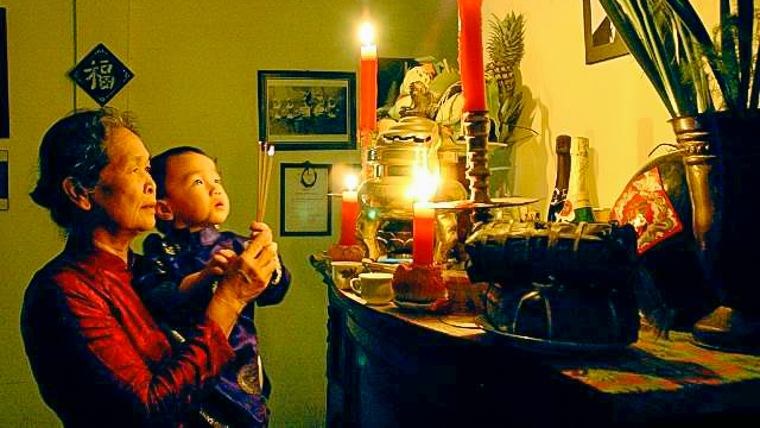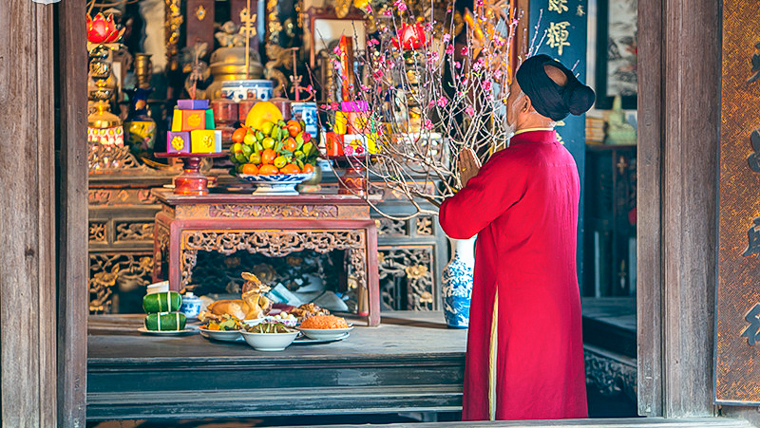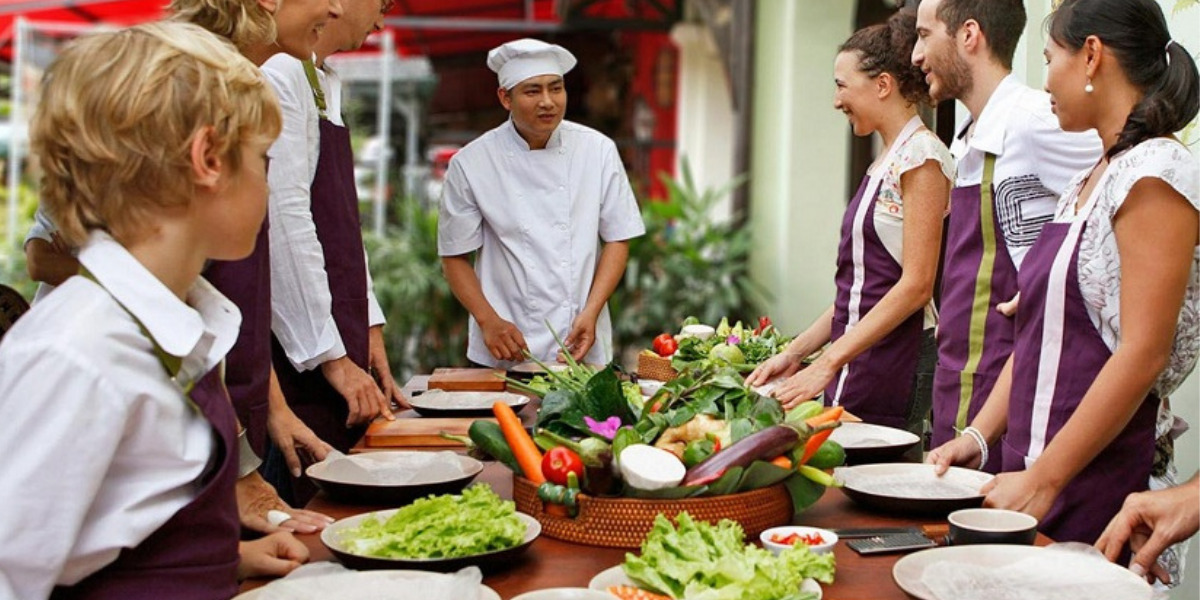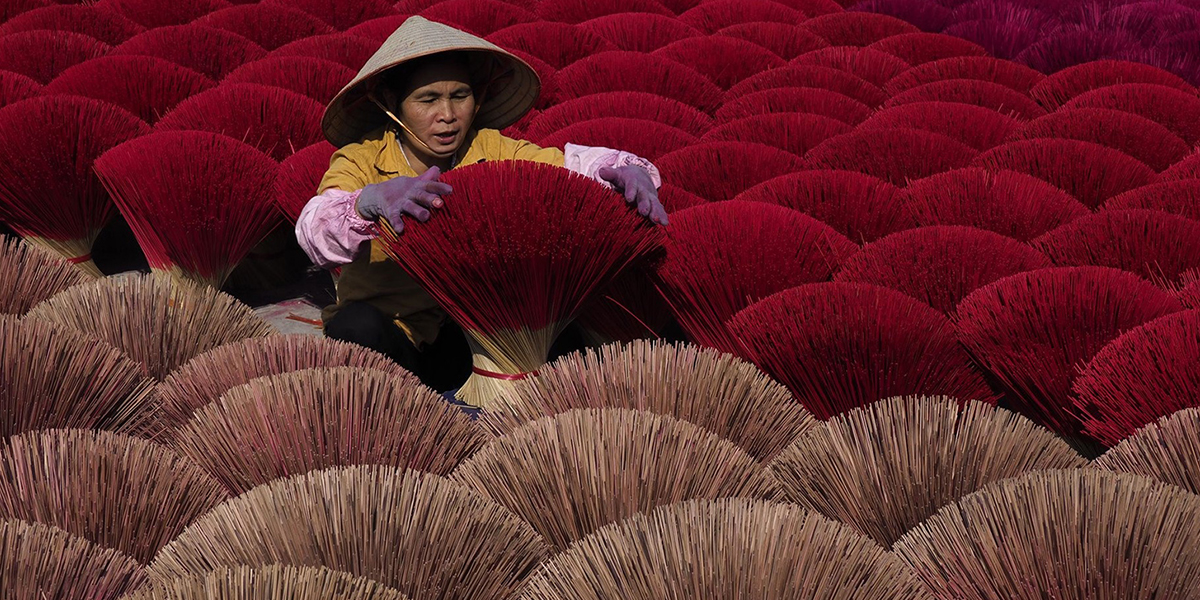The practice of worshiping ancestors in Vietnam plays an essential role in educating the morality of members, reminding them of the merits of past generations, which has been preserved and promoted over the long history of the nation. So what is the origin of this practice and its nature? The answer will be found in the article below.
I - The origin of the practice of ancestor worship in Vietnam

Vietnamese clan ancestral house - Source: anlandpremium.vn
Until now, the origin of Vietnamese ancestor worship practice is not consistent and controversial in the social sciences. Some based on the similarity in terms of rituals of worshiping the deceased of the Vietnamese people and the Chinese and made the decision that this practice basically originated from that in China, then gradually spread in Vietnam, then became the widespread practice among the Vietnamese people.
In contrast, others assumed that worship ancestors in Vietnam stemmed from the country itself. After a thousand years of Northern domination, it has been influenced by the culture and beliefs of the Han people - the most crowded people in China. Accordingly, it is a type of folk belief, derived from the concept of “all-natural things have spirits”. The Vietnamese worship the most ancient Gods, particularly Nature Gods such as Tree Gods, Rock Gods, Mountain Gods, River Gods, etc. The anthropomorphization of Nature Gods is the premise to establish the faith of worshiping human beings, particularly the passed people.
In regards to psychology, the practice of ancestor worship in Vietnam derives from the faith in the immortality of ancestral spirits. The descendants worship the passed generations to pay tribute and express profound gratitude to the deceased people who had the merits to take them to this world and raise them up. Therefore, it is regarded as the close connection between the past, the current life, and the future. People believe in the afterlife that Death is not the end of life, but the beginning of a new cycle of birth, and they will be reincarnated in another life.
Most family lineages have the clan ancestral house to worship the ancestor of the entire lineage. Every year on the death anniversary of the ancestor, every member in the lineage gets together to commemorate the ancestor.
II - How is the practice of ancestor worship in Vietnam manifested?

Vietnamese ancestor worship includes many rituals - Source: chuaxaloi.vn
In Vietnamese families, there is usually an ancestor altar arranged and decorated differently from one family to another. However, in general, the altar is always placed in a spacious and clean position and in the center of the house. The altar is basically set with an incense burner bowl, ancestral tablet, and oil lamps. The must-have offerings can be named incense sticks, flowers, and cups of water.
On special days and occasions such as the 1st day and the 5th day of every lunar month, lunar July 15th (the Vu Lan festival or Vietnamese Mother’s Day), the Death Anniversary of the ancestors, Vietnamese Tet holiday, the family offers incense and offerings such as food tray, flowers, candies, betel nuts, or dishes of sticky rice to invite the deceased go back home and enjoy the special moments with living people.
Other common rituals on these occasions are burning votive paper, reading prayer (generally by the oldest man in the family),... After reading the prayer, the householder bows 3 to 5 times to express the children’s filial piety towards their ancestors.

Ancestor worship in Vietnam is an important belief in the spiritual life - Source: ngotoc.vn
Particularly, during the Vietnamese Tet holiday or the death anniversary, every member of the family strives to come back home to enjoy a family reunion and strengthen family bonds with other members. The altar is carefully cleaned, meticulously decorated with fresh flowers, and set with a hearty food tray featuring boiled chicken, bánh chưng (stuffed sticky rice cake), dumplings, and roasted pork,...
In addition, a five-fruit tray is indispensable during this important occasion. Normally, the tray usually features 5 different types of fruit including a bunch of green bananas, ripe pomelo, kumquats, persimmons, and yellow papaya, which symbolize the protection of supernatural powers and ancestors, wealth, prosperity, good health, and luck. The five-fruit tray varies from each region to another, featuring other kinds of fruits such as soursop, coconut, papaya, mango, and fig,...
Ancestor worship in Vietnam is one of the most long-standing traditions of Vietnamese people carrying plenty of meanings and expressing the fine practice of the nation, which has a profound effect on the next generations. Hopefully, the article "Vietnamese ancestor worship" above provides you with more insight into this valuable tradition and its importance in the daily life of the Vietnamese.







.jpg) — Ha Bich
— Ha Bich





































